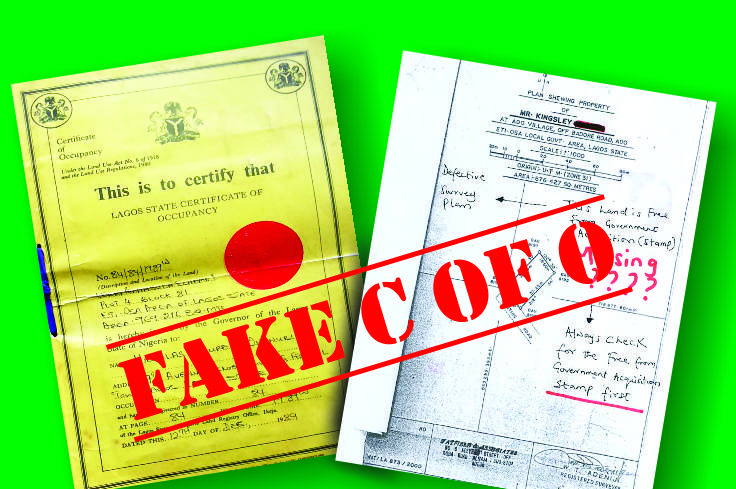Investing in Nigerian real estate from abroad is an exciting opportunity, but it comes with challenges, especially when it comes to verifying property documents remotely. Ensuring that a property has the correct legal documentation is crucial to safeguarding your investment. This guide walks you through the best tools, practices, and expert recommendations to verify property documents remotely, giving you peace of mind and confidence in your real estate transactions.
Why Property Document Verification is Critical
Before delving into the steps, it’s essential to understand why property verification is a non-negotiable process for diaspora investors:
- Avoid Fraud: Nigeria’s real estate market can be fraught with scams, including fake title documents and disputed ownership.
- Prevent Legal Issues: Proper documentation protects you from future legal disputes.
- Ensure Marketability: Verified properties are easier to resell or rent, maximizing your ROI.
Essential Property Documents to Verify
When purchasing property in Nigeria, ensure these key documents are authentic:
- Certificate of Occupancy (C of O): The most critical document that proves legal ownership and specifies land use.
- Governor’s Consent: Required for the transfer of property ownership.
- Deed of Assignment: Indicates the transfer of ownership from the seller to the buyer.
- Survey Plan: Shows the property’s location, boundaries, and size.
- Land Receipts: Proof of payment for the land.
- Excision and Gazette (if applicable): For lands under communal ownership, these documents show government approval for private ownership.
Tools and Resources for Remote Property Document Verification
1. Lagos State Land Online Platform
- Website: https://landonline.lagosstate.gov.ng/search-ctc/search
- Features:
- Verify property titles.
- Check for encumbrances.
- Access landowner details.
- Best Practice: Use the platform to confirm the authenticity of a Certificate of Occupancy or Governor’s Consent.
2. Federal Ministry of Lands and Housing Portals
- Check the Federal Ministry of Housing’s resources for properties outside Lagos.
- Regional platforms like the Abuja Geographic Information Systems (AGIS) offer verification services for properties in Abuja.
3. Engage Licensed Real Estate Professionals
- Lawyers: Hire a real estate lawyer to scrutinize documents and confirm authenticity.
- Surveyors: Use licensed surveyors to validate the survey plan matches the property.
4. Property Verification Companies
- Use companies that specialize in property verification for investors abroad, such as PropertyPro Verification Services.
- They offer document checks and on-site inspections.
5. Technology Tools
- Video Calls for Inspections: Platforms like Zoom or WhatsApp allow you to inspect properties and documents with your agent or lawyer virtually.
- Cloud Storage: Use tools like Google Drive to store and share verified documents securely.
- Blockchain-Based Verification: Some platforms are beginning to offer blockchain-powered land registry verification for enhanced security.
Best Practices for Remote Property Verification
1. Work Only with Verified Professionals
- Choose real estate agents and lawyers registered with the Nigerian Bar Association (NBA) or the Nigerian Institution of Estate Surveyors and Valuers (NIESV).
2. Request Digital Copies of Documents
- Ask the seller or agent to provide scanned copies of all documents.
- Share these documents with your lawyer for a detailed review.
3. Conduct Title Searches
- Use online platforms like the Lagos State Land Bureau to check property titles.
- Confirm there are no encumbrances (e.g., mortgages or disputes) on the property.
4. Engage Local Representatives
- Hire a trusted representative to visit the land registry and cross-check documents.
- They can also physically inspect the property to confirm it matches the survey plan.
5. Verify Seller’s Identity
- Ensure the seller has the legal authority to transfer ownership.
- Request identification documents and confirm they match property ownership records.
6. Demand a Certified True Copy (CTC)
- Request a CTC of key documents from the land registry.
- A CTC guarantees that the document is a valid reproduction of the original held by the government.
Common Red Flags to Watch Out For
- Incomplete Documentation: Missing key documents like a Certificate of Occupancy or Governor’s Consent.
- Unregistered Land: Land not registered with the state government.
- Disputed Ownership: Multiple parties claiming ownership of the property.
- Fake Agents: Agents unwilling to provide documentation or engage in verification processes.
Benefits of Verifying Property Documents from Abroad
- Peace of Mind: Ensures your investment is secure and free from legal entanglements.
- Informed Decision-Making: Helps you understand the property’s true value and potential.
- Enhanced Marketability: Verified properties are easier to sell or rent.
Let’s Hear From You!
Have you faced challenges while trying to verify property documents in Nigeria? Share your experience or tips in the comments below.




